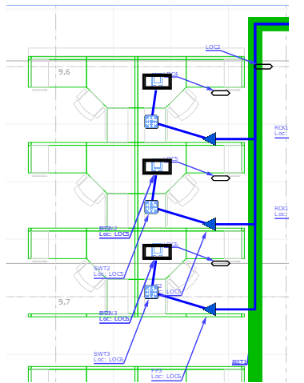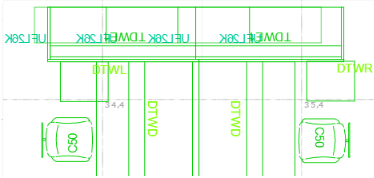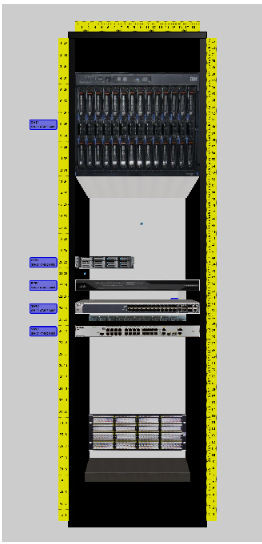4.3.5. Equipment Management
In IRM, equipment objects are used to define all hardware that is to be tracked either as an asset and / or that is used in tracking space, power and port capacity, availability and usage (cable connectivity).
Below is just an example of Equipment objects used to represent hardware in IRM:
-
Data Stations (e.g. PC’s, Laptops, SmartPhones, etc.)
-
Faceplates (e.g. Workarea outlets, etc.)
-
Connecting Blocks (e.g. 66 Blocks, Patch panels, etc.)
-
Networking Equipment (e.g. Switches Routers, Firewalls, Multiplexers, etc.)
-
Environmental Equipment (e.g. Cabinets, Air Conditioners, etc.)
-
Security Equipment (e.g. Video Switches, Video Recorders, etc.)
-
Power Equipment (e.g. PDU, Remote Power Panels, Breakers, Outlets, Power strips ,etc.)
-
General Equipment (e.g. any device that does not fall into the other categories).
This section will introduce the user to the following functions:
-
Creating Equipment
-
Replacing Equipment
-
Moving Equipment
-
Removing Equipment
-
Labeling Equipment
-
Assigning Users Equipment
-
Managing Equipment in Rack Elevation
The following screenshot gives some examples of how Equipment objects are generally used within the IRM site workspace:



